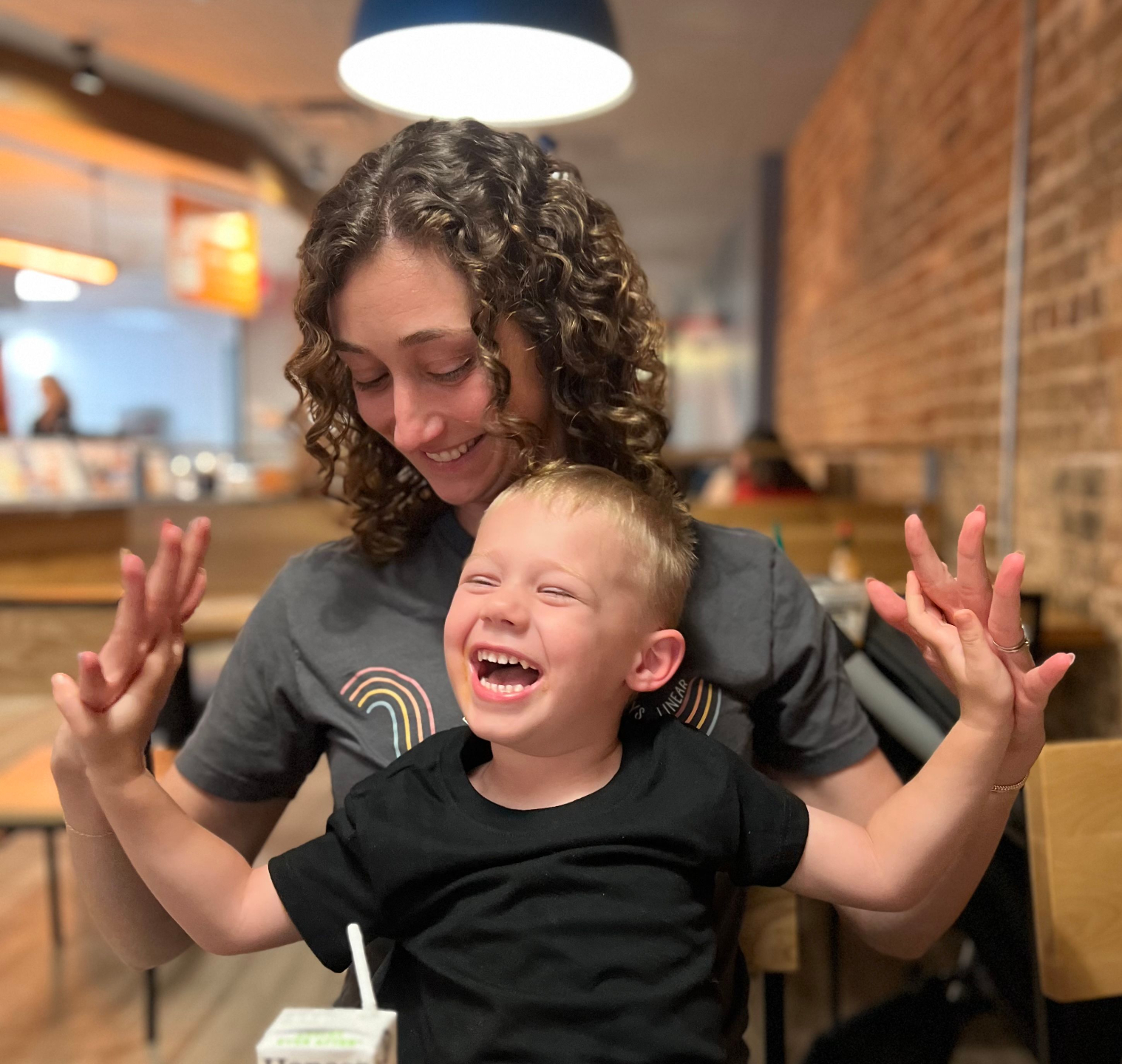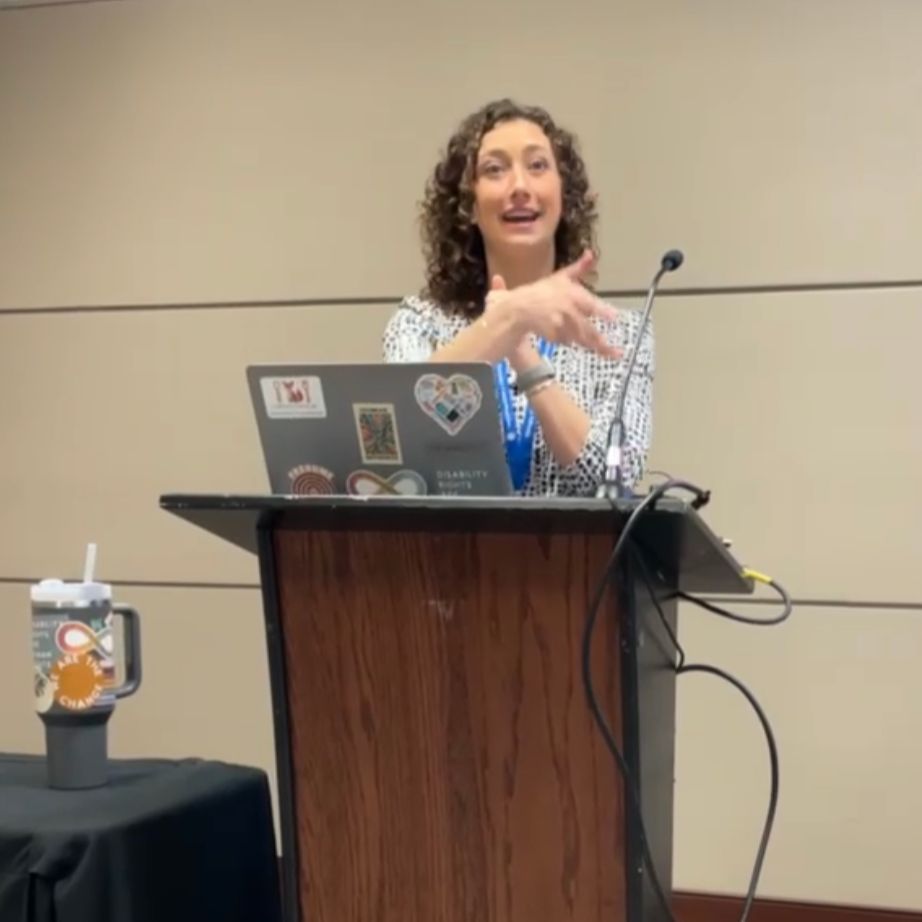Responsive Pathways to Progress: Comprehensive Assessment and Treatment of Pediatric Feeding Disorders
A dynamic and immersive two-day LIVE pediatric feeding course
This comprehensive course, presented by Brianna (Bri) Miluk, MS, CCC-SLP, CLC, is designed to enhance your knowledge and skills in pediatric feeding therapy.
Auckland, New Zealand!
March 18-19, 2024
In collaboration with Rachael Wilson at The Food Tree!
Registration is Now Closed. Bri hopes to be back in the future!

Learner Outcomes
Target Audience
Event Details
Quick Look at the Schedule
Detailed Course Outline
Day 1
On the first day, we will focus on building a solid foundation in pediatric feeding assessment and treatment. Participants will explore key assessment strategies, including evaluating oral-motor skills in a functional manner, signs and symptoms for referral to other disciplines, and variations of typical development. Evidence-based intervention philosophies, including responsive feeding practices and motor learning principles, will be included to provide foundation to treatment sessions. Through case studies and interactive discussions, we will delve into the complexities of feeding disorders to support application of material.
Introduction to assessment and therapy for pediatric feeding
- What is a Pediatric Feeding Disorder?: 1 hour
- How is it different from picky eating & ARFID?
- Assessment - beyond the basics: 1 hour
- Assessment tools & psychometric properties
- Functional oral motor examination
- Case-based video examples
- Context-based considerations
- Types of mastication patterns
- Video examples provided
Break: 10 minutes
- Assessment Case Studies/Examples: 1 hour
- Evaluation Samples
- Goal Writing Considerations
Lunch/Break: 45 minutes
- Signs/symptoms and common related diagnoses: 1 hour 15 min.
- How to Make a Referral
- Tips for Building Referral Network
Break: 10 min.
- Evidence-Based Treatment Philosophies: 1 hour 15 min.
- Experience-Dependent Neuroplasticity & Motor Learning Principles
- Responsive Feeding Approaches
- Interdisciplinary Care
- Case Study: 30 min.
- Q&A: 30 minutes
Day 2
The second day will dive deeper into evidence-based treatment approaches for pediatric feeding disorders. We will examine responsive feeding techniques, functional oral motor exercises and progressions, adaptive equipment, and mealtime modifications that support self-regulation and independence. Participants will learn effective strategies for addressing sensory challenges, tube weaning, and supporting a child's zone of proximal development. Controversial ("special") topics will be addressed throughout interventions to ensure a deep understanding in current state of the science to support evidence-based practice. The day will also emphasize the importance of interdisciplinary collaboration and fostering meaningful partnerships with families to achieve long-term success.
Interventions, Strategies, Tube Weaning, and Neurodiversity Affirming-Case
- Interventions & Strategies: 2 hours
- Oral Dysphagia
- Functional oral motor exercises, cup drinking, introducing solids, advancing chewing skills, and SO much more!
- Special Topics: Oral motor tools, tethered oral tissues, tongue thrust, and orofacial myofunctional therapy
Break: 10 min
- Interventions & Strategies Continued: 1 hour
- Pharyngeal Dysphagia
- Oral care, thickeners and weaning thickener, flow rates, positioning, modified free water, and more!
- Special Topics: NPO and neuromuscular electrical stimulation
- Esophageal Dysphagia Considerations: Our role as feeding therapists!
- Tube Weaning: 1 hour
- Signs of Readiness
- Types of Weaning Approaches
- What is the feeding therapist's role in tube weaning?
- Special Considerations/When a Complete Wean Isn't Feasible
- Case examples
Lunch: 45 minutes
- Neurodiversity affirming and trauma-informed care approach to feeding: 1 hour 15 minutes
- Autism and Pediatric Feeding Differences vs. Disorders
- ARFID treatment considerations
- Autism and Pediatric Feeding Differences vs. Disorders
Break: 10 min.
- How to implement neurodiversity-affirming & trauma-informed care and strategies in feeding therapy: 45 min.
- Resources to Learn More
- Case Studies: 45 min.
- Q&A: 30 min.
Disclosures

About Bri
Brianna (Bri) Miluk, MS, CCC-SLP, CLC, is a speech-language pathologist and certified lactation counselor with a passion for pediatric feeding therapy. Bri brings a wealth of knowledge and practical expertise in supporting infants and children with feeding difficulties. Her engaging teaching style and commitment to evidence-based practice will provide participants with valuable insights and actionable strategies.


